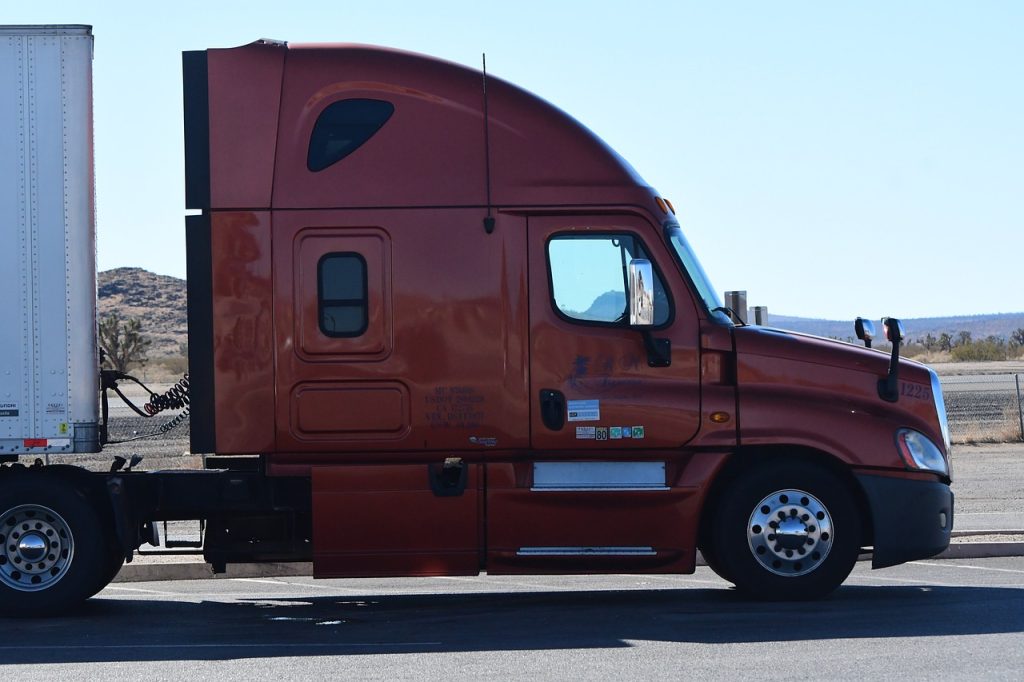What is Reefer Trucking?
Freedom Heavy Haul can offer expedited Pickup and Delivery for any size shipment anywhere in the USA. Contact us today for No Hassle, No Pressure Pricing.
Reefer trucking, a critical component of the logistics and transportation industry, specializes in transporting temperature-sensitive goods. In this article, you will learn what is reefer trucking, and the various facets of reefer trucking, providing a thorough understanding of its operations, challenges, and importance in modern logistics.
What is Reefer Trucking
Reefer trucking plays a pivotal role in ensuring that perishable products, such as food, pharmaceuticals, and other temperature-dependent items, reach their destinations safely and in pristine condition. Understanding the essentials of reefer trucking begins with exploring the roles, mechanics, and types of reefer trucks.
Definition and Role of a Reefer Truck Driver
The role of a reefer truck driver extends beyond mere transportation. These drivers are responsible for maintaining the right temperature, monitoring cargo conditions, and ensuring timely delivery. They are trained to handle the sophisticated cooling systems of reefer trucks and understand the nuances of hauling temperature-sensitive freight.
Mechanics Behind Reefer Truck Cooling Systems
Reefer trucks maintain cold temperatures through advanced refrigeration systems. These systems are designed to keep a consistent temperature, regardless of external weather conditions. Utilizing compressors, evaporators, and other components, these trucks can either cool or heat the cargo area as needed, making them versatile for various goods.
Why Refrigerated Trucks are Termed ‘Reefers’
The term ‘reefer,’ a slang for refrigerated, originates from the cooling mechanism employed in these trucks. It has become a standard industry term used to describe any truck with a refrigeration unit.
Types and Features of Reefer Trucks
Reefer trucks come in various sizes and capacities, from small vans suitable for quick, urban deliveries to large trailers hauled by semi-trucks for long-haul transport. The choice of truck depends on the cargo volume, distance, and specific temperature requirements.
Components and Structure of a Reefer Trailer
A typical reefer trailer comprises insulation materials, a refrigeration unit, temperature monitoring systems, and often, adjustable vents for airflow control. These components work in unison to maintain the desired climate inside the trailer, ensuring cargo integrity.
The Profession of Reefer Truck Driving
Reefer truck driving is not just a job but a specialized profession that requires specific skills and knowledge. It offers unique challenges and rewards, making it a distinct career path within the trucking industry.

Evaluating the Pros and Cons of Reefer Truck Driving
The career of a reefer truck driver comes with its set of pros and cons. While it offers higher pay due to the specialized nature of the job and more consistent work, it also demands strict adherence to delivery schedules and continuous monitoring of the cargo’s condition.
Is Reefer Truck Driving a Worthwhile Career?
Considering factors like the abundance of work, higher earning potential, efficiency in operations, and reduced downtime between jobs, reefer truck driving can be a lucrative and fulfilling career for many. However, it also requires a commitment to learning and adapting to the demands of handling sensitive cargo.
Difficulty Level of Being a Reefer Truck Driver
The challenges in reefer truck driving range from managing the technical aspects of the refrigeration unit to dealing with the pressure of maintaining cargo integrity. The difficulty level is generally higher than that of standard truck driving, but it is balanced by the rewards and satisfaction of the job.
Operational Aspects of Reefer Trucking
Reefer trucking is not just about driving a refrigerated truck; it encompasses a range of operational aspects, from understanding the necessity of this mode of transport to exploring its profitability.

Necessity and Usage of Reefer Trucking
Reefer trucking is essential for transporting goods that require controlled temperatures. The necessity arises from the growing demand for fresh produce, medical supplies, and other perishables that need to be transported over long distances without compromising quality.
Characteristics of Reefer Loads in Trucking
Reefer loads typically include food items, pharmaceuticals, flowers, and chemicals. These goods are not just temperature-sensitive but may also have specific humidity and ventilation requirements, making the reefer trucking operation complex and specialized.
Profitability in Reefer Trucking
The profitability of reefer trucking can be significant due to the specialized nature of the cargo and the added value of temperature control. This specialization often translates to higher freight rates compared to standard dry van shipping.
Best Practices in Reefer Trucking
Ensuring the safe and efficient transport of temperature-sensitive cargo involves adhering to best practices in reefer trucking. These practices are vital for maintaining cargo quality and optimizing operational efficiency.
Effective Transportation of Temperature-Sensitive Cargo
Key practices include regular maintenance of the refrigeration unit, precise temperature monitoring, proper cargo loading techniques, and adherence to safety regulations. These practices help in minimizing risks and ensuring the integrity of the cargo throughout the journey.
Maximizing Efficiency in Reefer Trucking
Efficiency in reefer trucking is achieved through strategic route planning, timely deliveries, effective communication, and leveraging technology for tracking and temperature control. These factors contribute to reducing operational costs and enhancing service quality.
Environmental Impact on Reefer Trucking
As the industry evolves, so do the challenges and opportunities in reefer trucking. Advanced topics include technological innovations, environmental considerations, and future trends shaping the industry.

Innovations in Reefer Truck Technology
Technological advancements in reefer trucking are focused on improving fuel efficiency, reducing emissions, enhancing temperature control precision, and integrating smart technologies for real-time monitoring and data analysis.
Environmental Impact and Sustainability in Reefer Trucking
The environmental impact of reefer trucking is a growing concern, leading to efforts in reducing carbon footprints, using eco-friendly refrigerants, and exploring alternative fuels. Sustainable practices are becoming increasingly important in the industry.
Future Trends in Reefer Trucking
Future trends in reefer trucking include the adoption of electric vehicles, automation in temperature control, and increased use of data analytics for optimizing operations. These trends indicate a shift towards more efficient, sustainable, and technologically advanced reefer trucking solutions.







